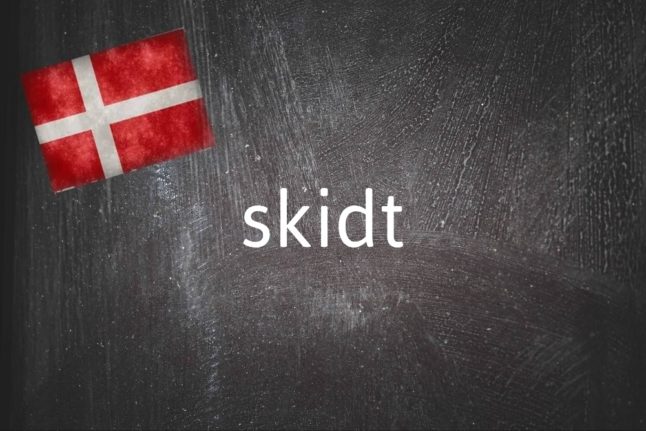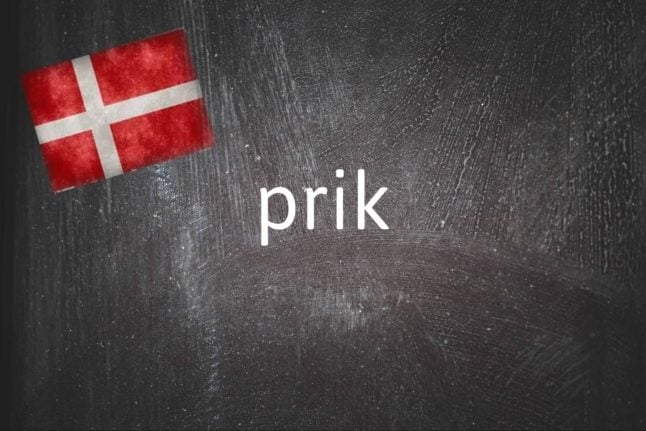What is skidt?
We can begin by answering this question in a literal sense, as skidt is a noun meaning ‘dirt’. It usually refers to specific types of dirt: think of soil on a child’s clothing after a day at school, or the dirt stuck on to the surface of a garden chair left outside over winter.
This meaning of skidt is related to the Low German word schitt, and from here you should be able to easily deduce its English cousin.
Skidt as a noun can also mean an animal’s droppings (but not a person’s), and there is also a verb, at skide (literally ‘to shit’) which can be used regardless of whether a human or an animal is doing the defecating.
Another noun use of skidt is comparable to saying ‘crap’ in English as a broad term for ‘bad things’. For example, han blev indblandet i en masse skid tog endte med at blive anholdt is equivalent to ‘he got involved in a lot of crap and ended up getting arrested’.
In some circumstances it’s a straight synonym for ‘bad’ or, in Danish, dårlig. You might hear a football commentater remark det var et skidt hjørnespark (‘that was a poor corner kick’) if the player taking the kick scuffs it straight to the nearest defender.
Why do I need to know skidt?
This isn’t the only way to use skidt, which is also an adjective, but the explanation of the noun version helps to understand its meaning in various contexts.
As an adjective, skidt is a synonym of ‘bad’. For example, jeg har det skidt means ’I feel bad’ or perhaps ’I feel like crap’ and keen be used in relation to both physical and mental wellbeing: jeg har det skidt, jeg tror jeg er syg (I feel bad, I think I might be sick) or jeg har det skidt med, at jeg stadig skylder ham penge (I feel bad about still owing him money).
It can also be used in relation to others: du ser skidt ud would be like saying ‘you look unwell’, where a slightly more polite alternative might be du ser dårlig ud where dårlig, which literally means ‘bad’, substitutes for ‘unwell’ in the context of the sentence.
Similarly to the word pyt, skidt can also be used as an interjection after a mistake or frustration.
The closest English translations for this are ‘never mind’, ‘don’t worry’ or ‘shit happens’. But pyt and this iteration of skidt also come with a positivity, to express that you accept a situation is out of your control and there’s no need getting worked up about it.
They can even be combined to the same effect: pyt skidt means the same thing as skidt med det, i.e. ‘never mind about that’.



 Please whitelist us to continue reading.
Please whitelist us to continue reading.
Member comments